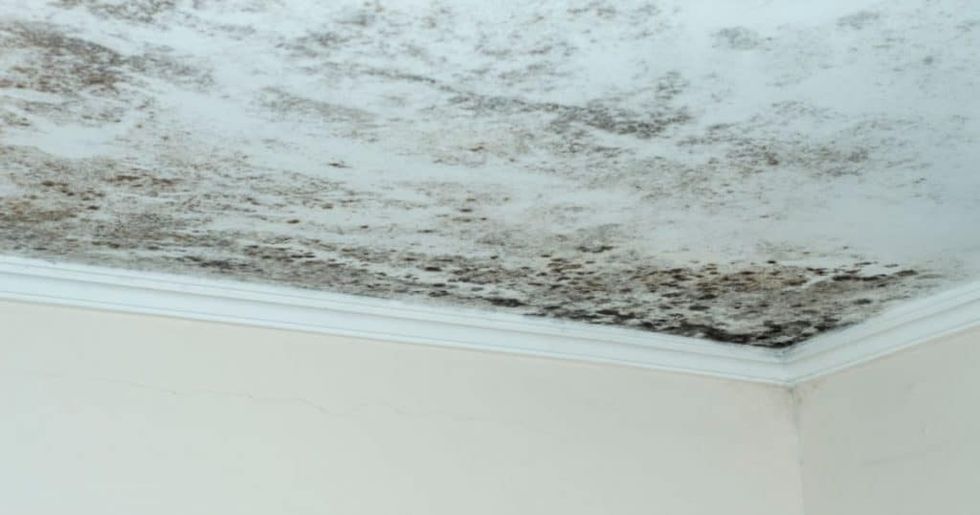DISILLUSIONED retailers have told Eastern Eye they have stopped reporting crime after a lack of action by the police.
Violence and abuse against those working in retail, including racial and sexual attacks, physical assault and threats with weapons have almost doubled from pre-pandemic levels to over 850 per day, according to the British Retail Consortium’s (BRC) figures.
A further report by the Association of Convenience Stores (ACS) found that 89 per cent of staff working in convenience stores faced abuse.
A freedom of information request by Co-op, in July, revealed that police failed to respond to 71 per cent of reported serious retail crimes.
Mos Patel owns two shops in Greater Manchester. He said he has resorted to naming and shaming offenders on Facebook rather than reporting them to the police.
“Are the thieves scared of the police? No. Because they know they are going to get away with it,” Patel told Eastern Eye.
“We’ve stopped reporting incidents because we know what’s going to happen. They (police) are going to come and give you a crime reference number. Are they going to take the CCTV footage? No. Are they going to take a statement? No. Instead, they are going to try and talk people out of giving a statement because it means more work for them.”
Patel gave the example of how police “let down” one of his employees, a 70-year-old man who was hurt during a shoplifting incident.
“We call him uncle. He is a retired shopkeeper who needs a part time job just to keep his mind and body occupied. A guy walks in, steals some wine and on the way out he pushes Ramos uncle, who goes flying. We phoned the police because he’s been assaulted. They turned up 24 hours later and tried to talk him out of reporting it. They kept asking him ‘are you really sure you want to give a statement?’
“I said to them, ‘what the f**k are you playing at? Imagine, he fell and banged his head. Look how old he is’. When I said that, they took him away from me.
“Did anything happen? Of course, not; nothing happened at all.”
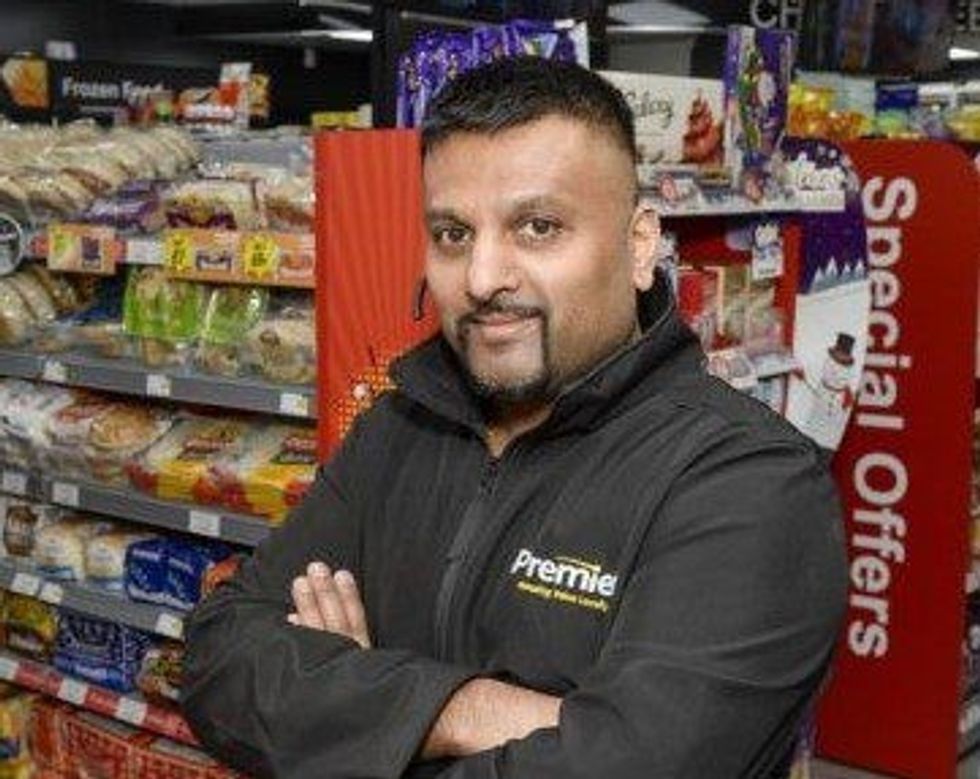
Patel added that the criminals were in fact more concerned about their photographs showing up on Facebook rather than being confronted by police.
“We had to do something, and this is sending a message out because it makes them think twice. They think ‘oh s**t, they're gonna post this on Facebook’. It’s 100 per cent a deterrent because your own community is going to see you’ve been publicly named and shamed.”
There are 48,590 convenience stores in the UK, with 44 per cent being owned by British Asian, according to the ACS.
Andy Marino, editor of the Asian Trader magazine, a sister title of Eastern Eye, said he has heard first-hand from his readers about the struggles they are going through.
“Our readers are in absolute despair. They haven’t seen things as bad as this.
Thieves brazenly walking into their stores and stealing hundreds of pounds of worth of goods. And we are hearing that things have escalated and organised gangs are coming in and cleaning out entire shelves,” he said.
“Retailers are feeling completely helpless. They are getting no support from the police. The criminals feel emboldened by a lack of action from the police. One shopkeeper told me a woman in her 60s comes into his store and walks out with bottles of wine. When they try and stop her, she replies, ‘Don’t touch me, I know my rights’. It’s completely lawless out there.”
Vijay Kalikannan, a convenience store owner from Middlesbrough, has been threatened with physical violence from shoplifters and been racially abused.
“We’re called P**i. Told go back to your own country. It’s always with the white customers, never Asian customers,” Kalikannan told Eastern Eye.
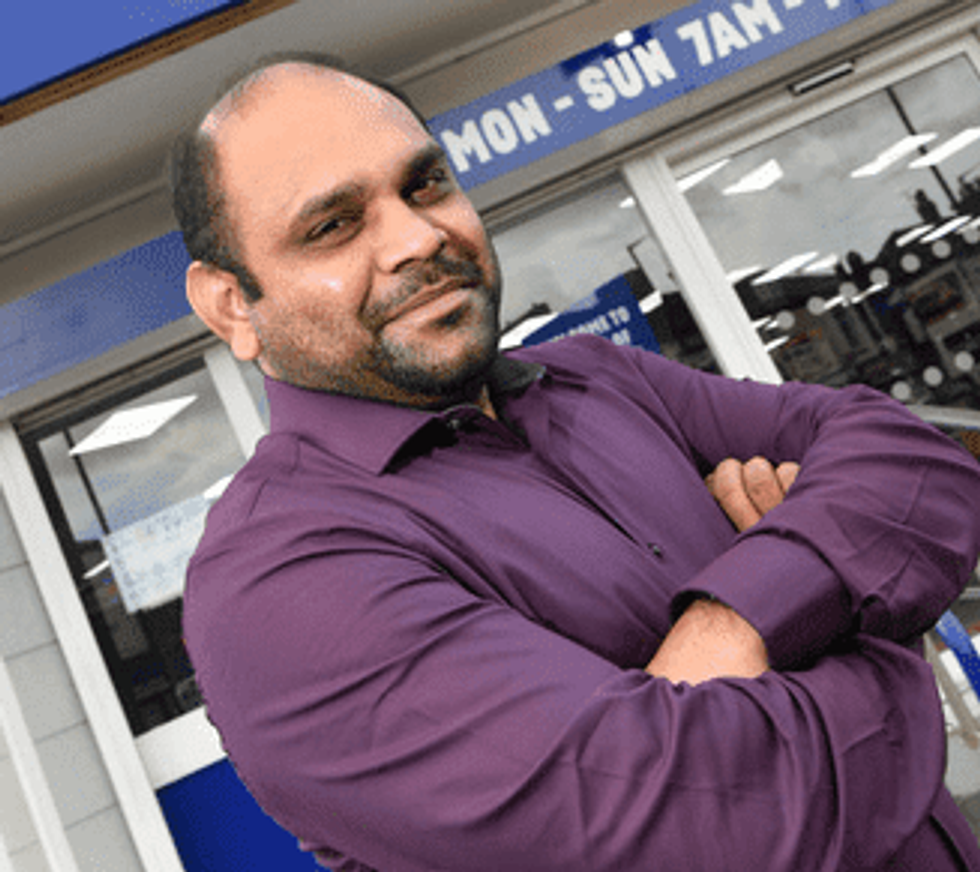
Retailer Imtiyaz Mamode described turning up for work every day in his store in Hampshire as “going to war”.
He said the shop used to be run by Southern Co-op before he took over, but they closed after just six months due to the shoplifting. His biggest challenge has been dealing with mobs of schoolkids looting from his store.
“The kids are the worst to handle. We have three-four schools nearby. They come in groups of 10-12 and openly steal. We try to stop them, but it's not easy. They are so abusive,” said Mamode.
Mamode said racist abuse isn’t limited to the adult shoplifters - he gets it form the children as well.
“They will swear at me over the colour of my skin. The country I am from. They’ll call me P**I even though I am not from Pakistan, I am from India,” he said.
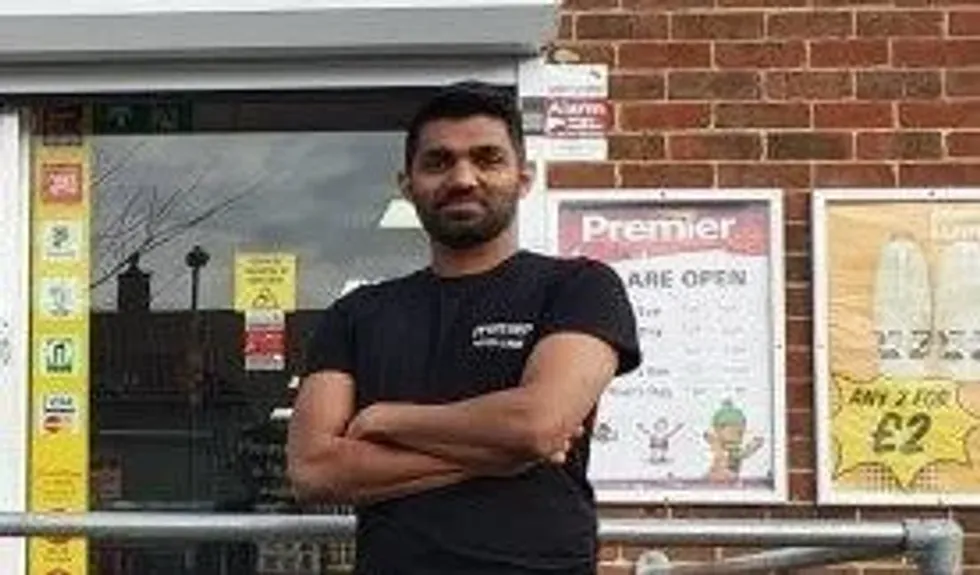
Mamode has, however, vowed to “never file a police complaint against anyone” after feeling let down by authorities in the way they dealt with a young shoplifter who had pulled a knife on him.
“In 2021, one kid, he was around for 13-14-years-old, ran with four Monster energy drinks. I chased him and then he removed a knife. It was caught on CCTV,” Mamode recalled.
“The case went to court. It was such a long process and a waste of time. They called me and brother to court so many times. We would go and wait for two-three hours every time just to be seen. And it was pointless because the kid just got six months community service.”
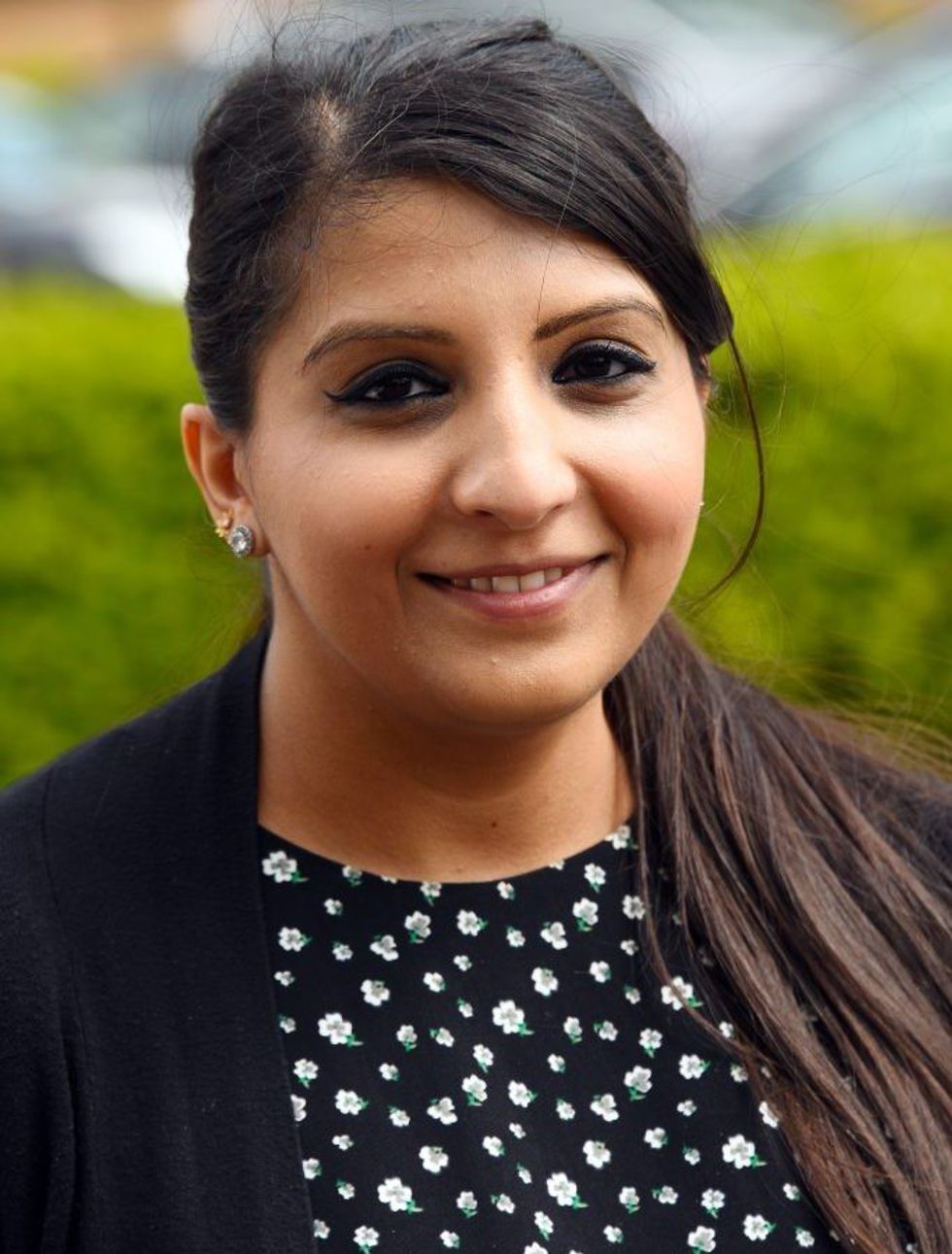
Stockport-based Co-op retail worker Shabana Ismail, 37, has been working in the sector since she was 16. She said abuse and ugly incidents are something she faces “literally every day”.
“Abuse has gone through the roof. Shopping baskets have been thrown at us. It gets overwhelming for us, but it’s our job after all, so we cannot do much about it. In the end, we can’t approach them physically or even try to deter them,” she revealed.
“The abuse and shoplifting have gone to such extent that we have to personally wear headsets and body cameras now. What if someone comes in with a knife and I get stabbed? I feel scared sometimes.”
Aman Uppal a convenience store owner from Coventry told Eastern Eye the police’s inability to “deal with the issue at hand” has led to retailers coming together to tackle shoplifting on their own.
“One way in Coventry has helped combat this. I'm part of a WhatsApp group with over 200 members on it, with is local security and retail staff from around the region,” said Uppal.
“There are people in the group working for multiples, independent stores, department stores, clothes and hardware stores. We constantly share intel and data and imagery, in a confidential manner, about these people committing the offences and this has seen a reduction in theft.
“It's happened on two instances, where I've seen a picture of a person who committed an offence locally, within minutes of it happening. That person walked through my doors 45 minutes later. However, by me being vigilant, no theft occurred in my store.”
Figures from the ACS’s latest annual crime report showed almost two-thirds (63 per cent) of crime is being driven by repeat and prolific offenders, with drug or alcohol addictions and organised crime among the main motivations for offending.
Andrew Goodacre, the chief executive for the British Independent Retailers Association (BIRA), said there needs to be a shift in mindset from authorities who still see shoplifting as a minor offence.
“Unfortunately, retail crime too often and for too long been seen as a as a low impact, almost victimless crime,” Goodacre told Eastern Eye.
“It’s seen as bits and pieces stolen from the shop, and it's perceived that a big business or businesses can cope with that - almost a by-product of running a shop.
“But, because of this attitude, people are not being prosecuted, it's almost become decriminalised and, in a way, allowed organised crime to take it a step further.”
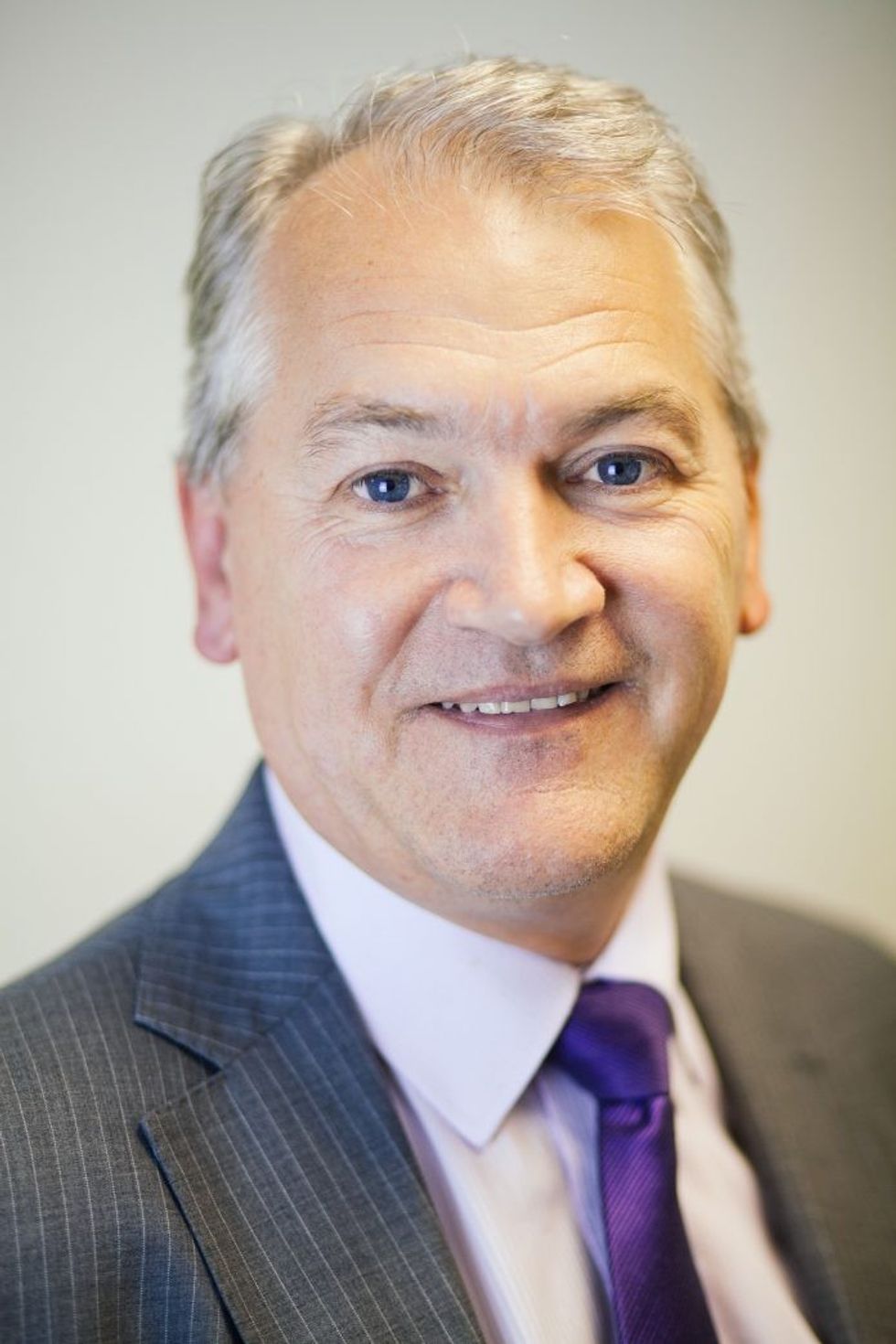
Goodacre said organised crime involves gangs coming in and wiping out entire shelves of expensive goods with the intention to sell it on.
“It's a low-risk, high-reward crime because criminals don't even have to break into businesses. They can walk in and just walk out with goods and no one is doing anything about it. We've created a problem through a lack of prioritisation,” he added.
Last month, home secretary Suella Braverman said police forces must investigate every theft. Braverman said it was "unacceptable" that crimes such as shoplifting, criminal damage and phone or car theft have been treated as "less important".
“Authorities are responding differently now,” said Goodacre. “I've just come off a conference call with a government minister and he's reassured me that that there is now a different agenda for dealing with this.
“They do understand that people’s livelihoods, their mental health, their lives are at risk. They do understand the impacts of a crime and I do think there's a there's a stronger determination to deal with it. What we all need to see, though, is those words turned into actions, sooner rather than later.”
BIRA team-up with the Federation of Independent Retailers (the FED) last week and wrote to policing minister Chris Philp calling for a government grant to be created to help them beef up their security systems amid the rise in shoplifting crimes.
The organisations said their members will need access to high quality security measures, such as CCTV and panic buttons, something many of them can ill-afford, especially in the cost-of-living crisis.
The letter said a grant worth up to £1,500 per retailer would enable smaller shops to improve their security measures, which would hopefully deter crimes from being committed, but would also assist police forces in solving crimes and would better protect local communities.
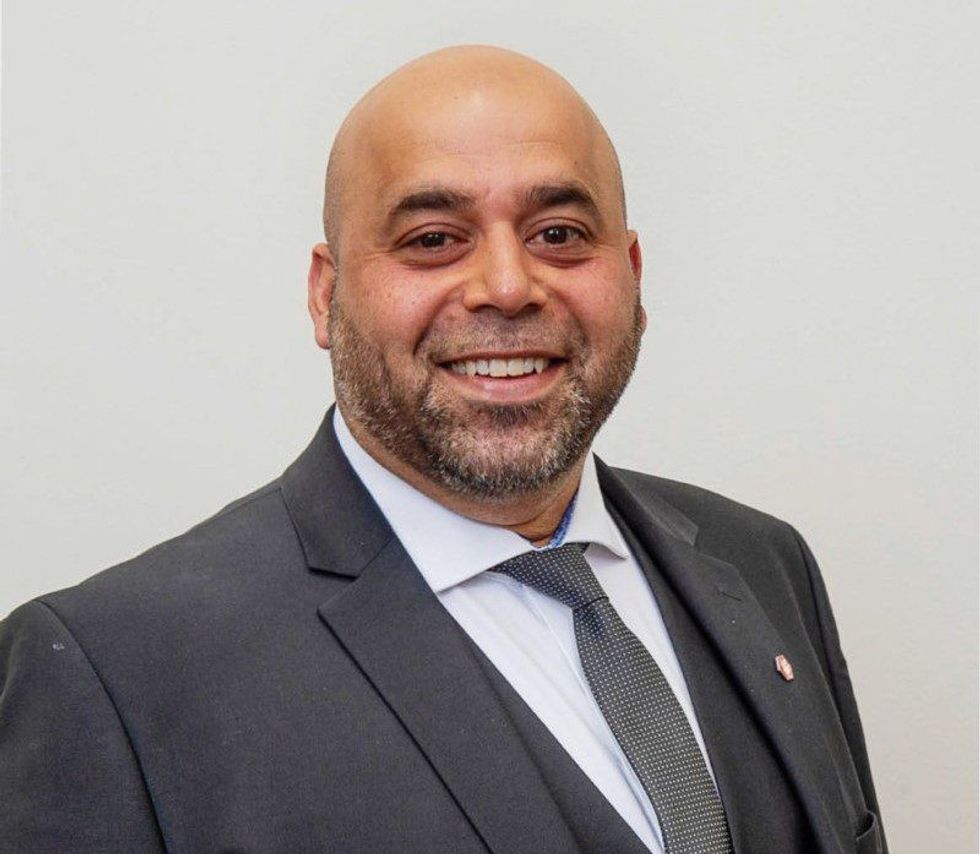
The Fed’s national president, Muntazir Dipoti, said: “Shop theft is not victimless. It blights the lives of independent retailers on a daily basis and has significant implications for a store’s viability. I am sure every Fed member has been affected by crime at some point, and, sadly, many incidents of shoplifting are becoming increasingly violent.
“With the cost-of-living crisis, we are seeing regular customers turning to shoplifting because they can’t afford to live.”
Dipoti added: “The burden of crime prevention shouldn’t fall on retailers’ shoulders. Government intervention is crucial to safeguard retailers, particularly smaller shops. Security measures are expensive to buy and install, and we as shop owners need support to protect ourselves, our staff and our livelihoods.”
In London, shoplifting has gone up by 21.1 per cent in the past year.
Businesses are increasingly turning to private security because they claim the Met won't attend shoplifting incidents.
The My Local Bobby scheme offers a warden service for a fee and runs patrols in more than 60 locations in London.
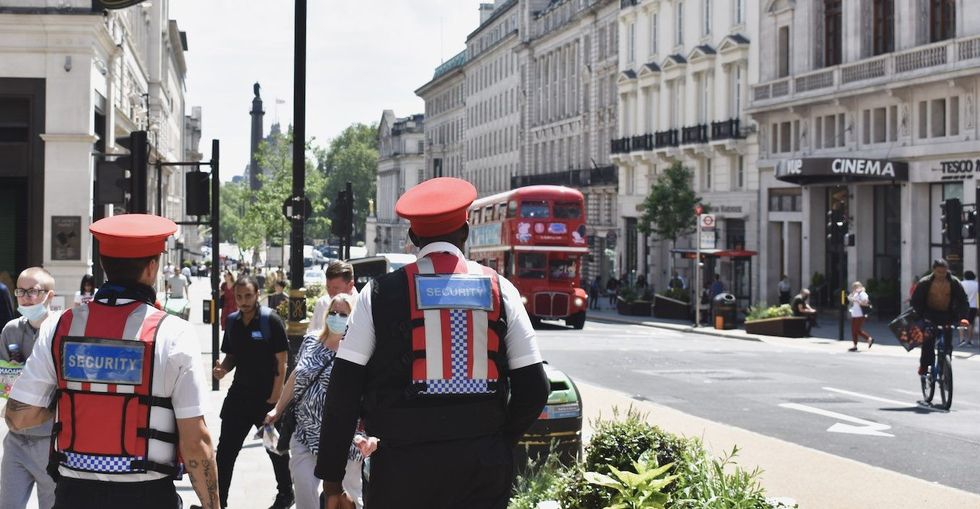
In a statement to Eastern Eye, the Met Police said: “Our New Met for London Plan is involving Londoners to give them a say in how their areas are policed.
“As part of this work we are collaborating with business and retail leads right across London to identify what matters to them, including the safety of shop-based workers and shoplifting. While it is not realistic for the Met to respond to every case of shoplifting in London due to demand, where a crime is being committed, a suspect is on the scene, and the situation has or is likely to become heated or violent, our call handlers will assess this and seek to despatch officers where appropriate.
“A London-wide roll-out of Op Retail, a successful pilot allowing more effective and stream-lined reporting of shoplifting where no offender has been detained or violence occurred, will be taking place in the autumn.
“We work with retail leads in London and we know first-hand the impact shoplifting and attacks on shop workers is having on individual staff and the wider business community.
“We understand that staff who are trained to challenge and deescalate may feel obligated to intervene, but the safety of those involved is our primary concern. Our advice is to intervene in line with your role and employers’ expectations only where it is safe to do so. If it feels like the situation is getting heated or violent, or someone is in immediate danger please call 999 and stay safe until arrival of police.”
















 Priyanka Chopra and Nick Jonas photographed at the Wimbledon 2025Getty Images
Priyanka Chopra and Nick Jonas photographed at the Wimbledon 2025Getty Images  John Cena, Shay Shariatzadeh, Priyanka Chopra and Nick Jonas at Wimbledon 2025Getty Images
John Cena, Shay Shariatzadeh, Priyanka Chopra and Nick Jonas at Wimbledon 2025Getty Images 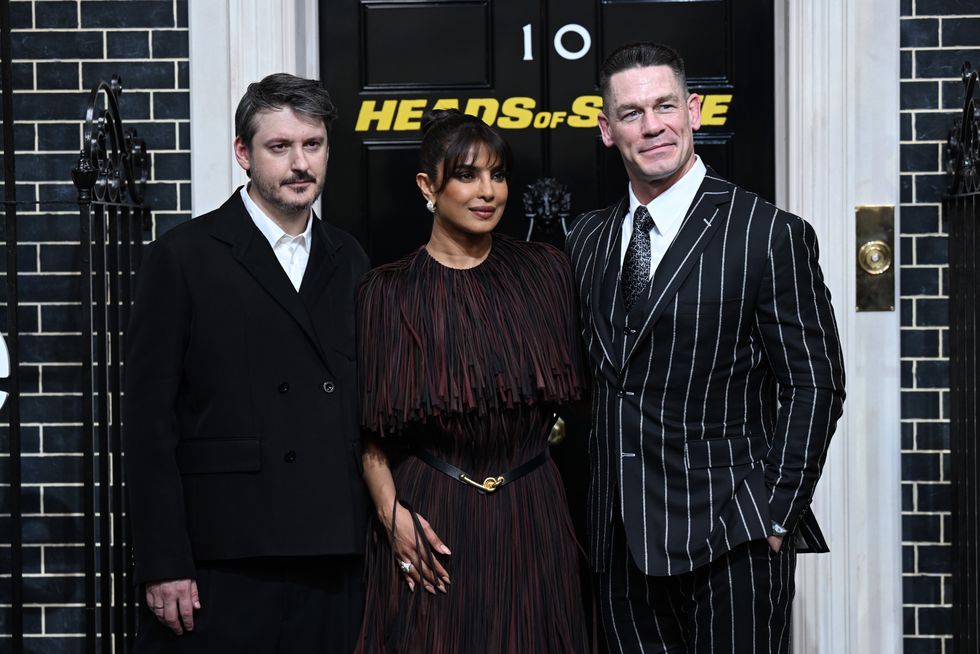 Ilya Naishuller, Priyanka Chopra and John Cena attend the special screening for "Head of State" Getty Images
Ilya Naishuller, Priyanka Chopra and John Cena attend the special screening for "Head of State" Getty Images
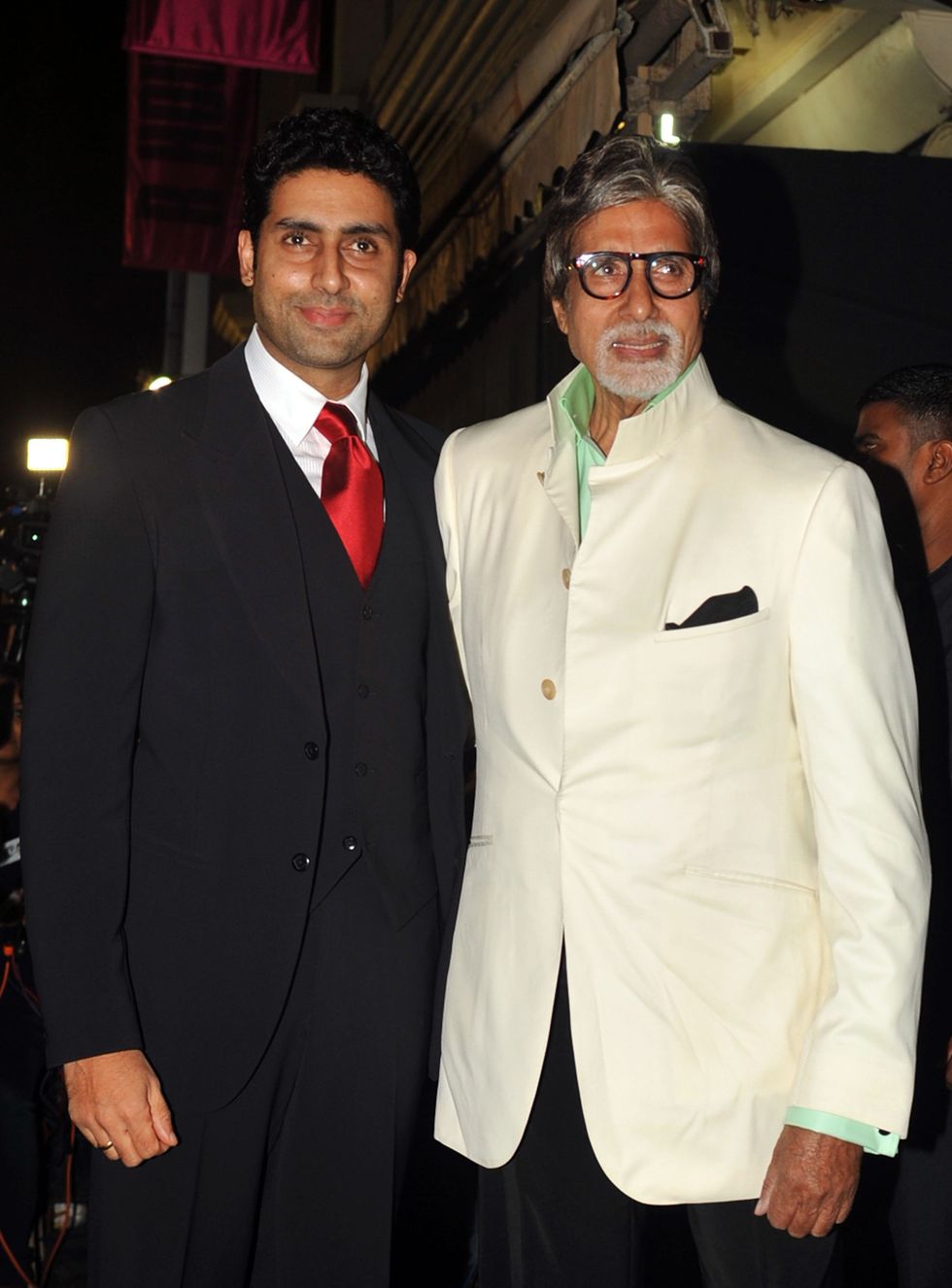 Abhishek Bachchan reveals Amitabh crushed him with brutal remark during Sarkar shootGetty Images
Abhishek Bachchan reveals Amitabh crushed him with brutal remark during Sarkar shootGetty Images 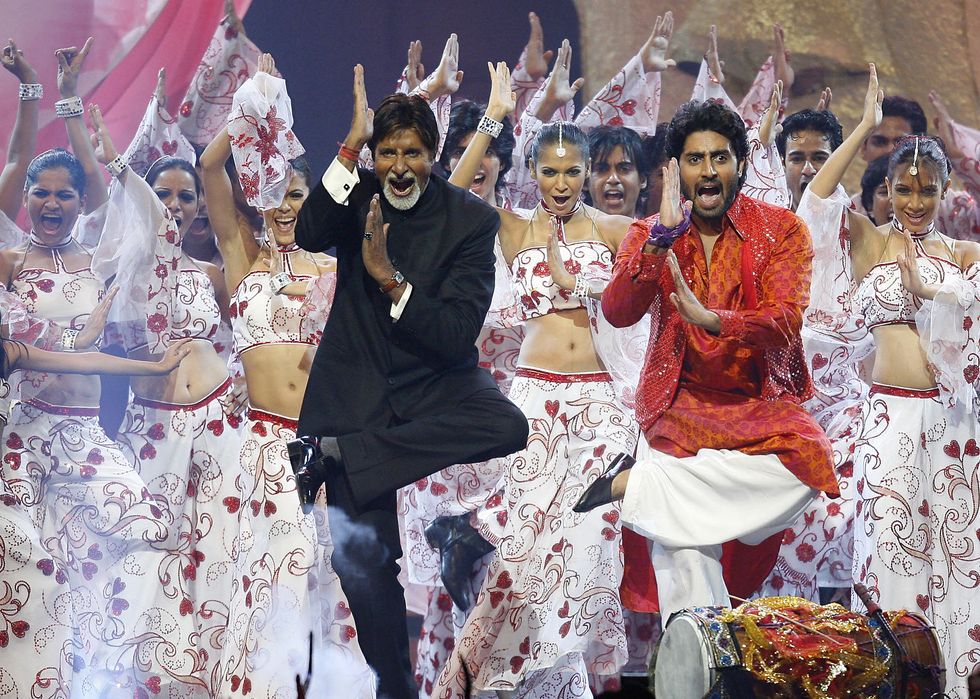 Amitabh Bachchan told me I cannot deliver dialogues Abhishek recalls painful Sarkar momentGetty Images
Amitabh Bachchan told me I cannot deliver dialogues Abhishek recalls painful Sarkar momentGetty Images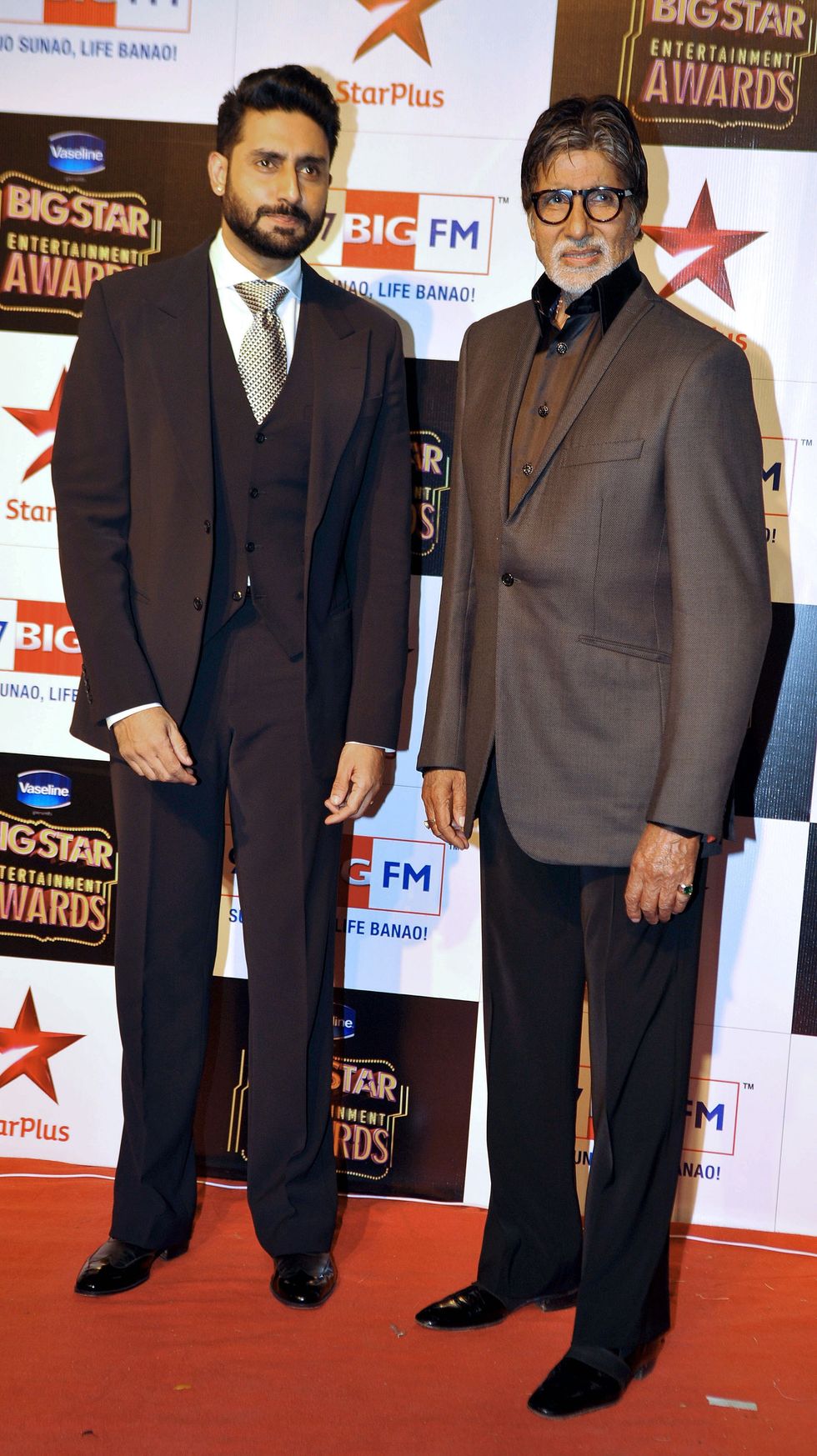 Abhishek Bachchan opens up about working with Amitabh Bachchan on SarkarGetty Images
Abhishek Bachchan opens up about working with Amitabh Bachchan on SarkarGetty Images Abhishek Bachchan says Amitabh humiliated him after one line went wrong on Sarkar setGetty Images
Abhishek Bachchan says Amitabh humiliated him after one line went wrong on Sarkar setGetty Images  Abhishek Bachchan says Amitabh left him shaken after first scene together in Sarkar Getty Images
Abhishek Bachchan says Amitabh left him shaken after first scene together in Sarkar Getty Images 
